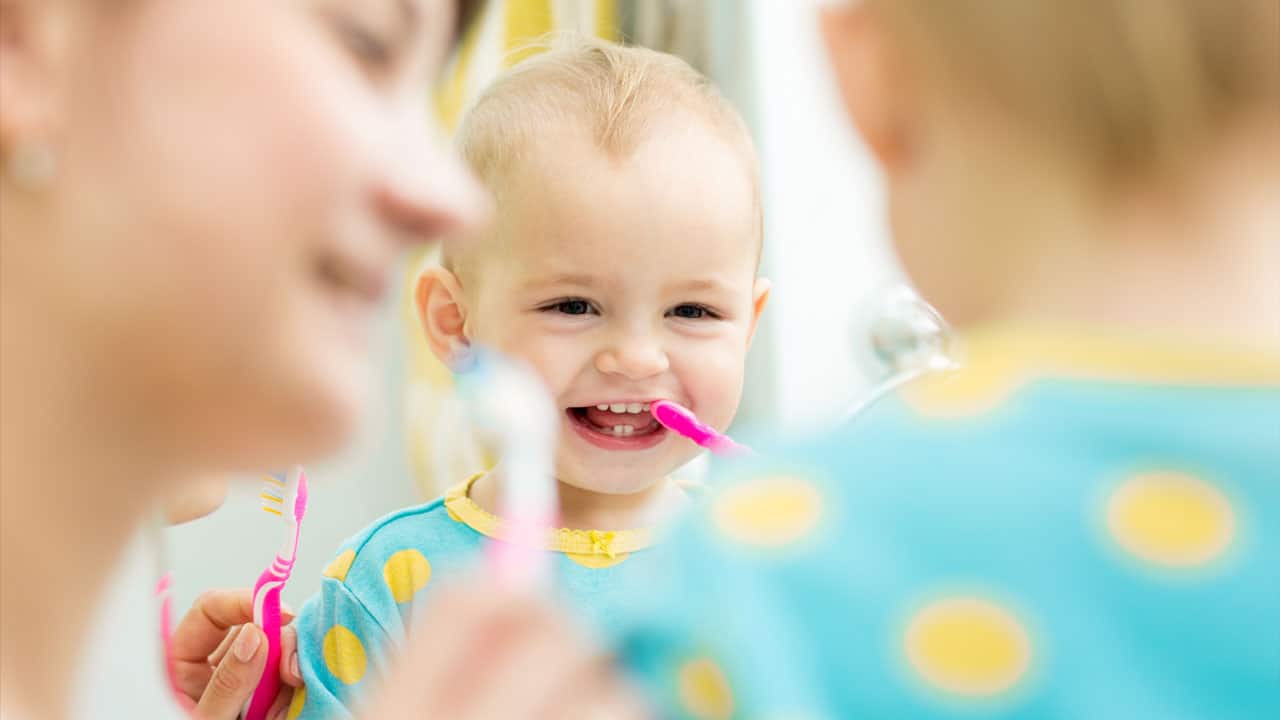Baby Teeth: Everything a Parent Needs to Know

Every milestone in a child’s growth is a celebration for parents. One of these milestones is the appearance of the first tooth. Teething is a critical process in your child’s development. Although often challenging, parents need to understand what to expect, how to care for baby teeth, and the importance of baby teeth for a child’s future dental health.
The Timeline of Baby Teeth
Most babies start teething around 6 months, but this can vary. Some may start as early as three months, while others could take up to a year. Usually, the two bottom front teeth (lower central incisors) appear first, followed by the 2 top front ones (upper central incisors). By age 3, a child should ideally have a full set of 20 primary teeth.
The timeline for teething can differ from one child to another. However, if no teeth have erupted by 18 months, consult a pediatric dentist. Delayed tooth eruption can be due to various issues, including endocrine disorders like hypothyroidism and developmental conditions such as cleidocranial dysostosis or malnutrition. Your dentist can help identify these issues and create a treatment or oral health care management plan.
Recognizing Teething Symptoms
Typical teething symptoms include drooling, fussiness, and biting on hard objects. Your baby may also have sore or tender gums. A slight increase in body temperature can occur, but if your baby develops a high fever, consult a doctor, as it might not be related to teething.
Caring for Baby Teeth
Maintaining oral hygiene starts when your baby’s first tooth appears. Clean your baby’s teeth twice daily using a baby toothbrush with soft bristles and a smear of fluoride toothpaste no larger than a grain of rice. As the child grows older, you can begin to teach them how to brush their teeth under your supervision.
Importance of Baby Teeth
While they are temporary, baby teeth are extremely important. They help children chew food, learn to speak properly, and hold space in the jaws for the permanent teeth growing under the gums. The health of the baby teeth directly contributes to the health of the adult teeth.
Regular Dental Check-ups
The American Academy of Pediatric Dentistry recommends that a child go to the dentist by age 1 or within six months after the first tooth erupts. Regular dental visits are crucial in detecting potential problems early, learning proper oral hygiene techniques, and creating a positive relationship with the dentist.
Baby Tooth Loss
Baby teeth usually start to fall out around six years of age, giving way to permanent teeth. It’s a process that will last until your child is around 12 or 13. If a baby tooth is lost too early due to decay or injury, it could lead to crowding or misalignment problems for the incoming permanent teeth.
Your child’s dentist will fit them with a space maintainer until age 8. This device maintains the space left behind by the prematurely lost tooth, preventing neighboring teeth from shifting into the area.
Partnering with Hinsdale Dental for Your Child’s Healthy Smile
As a parent, caring for your child’s teeth might seem overwhelming. However, understanding the basics of baby teeth, their care, and their importance can help set the stage for your child’s lifelong oral health.
We are committed to providing your child with the highest quality dental care at Hinsdale Dental. Our team is always ready to guide you through every step of your child’s dental journey, ensuring they have a healthy smile from infancy to adulthood.
Take the first step towards your child’s healthy dental future by contacting Hinsdale Dental today. We offer a comprehensive range of pediatric dental services tailored to meet your child’s unique smile.
Return to Blog